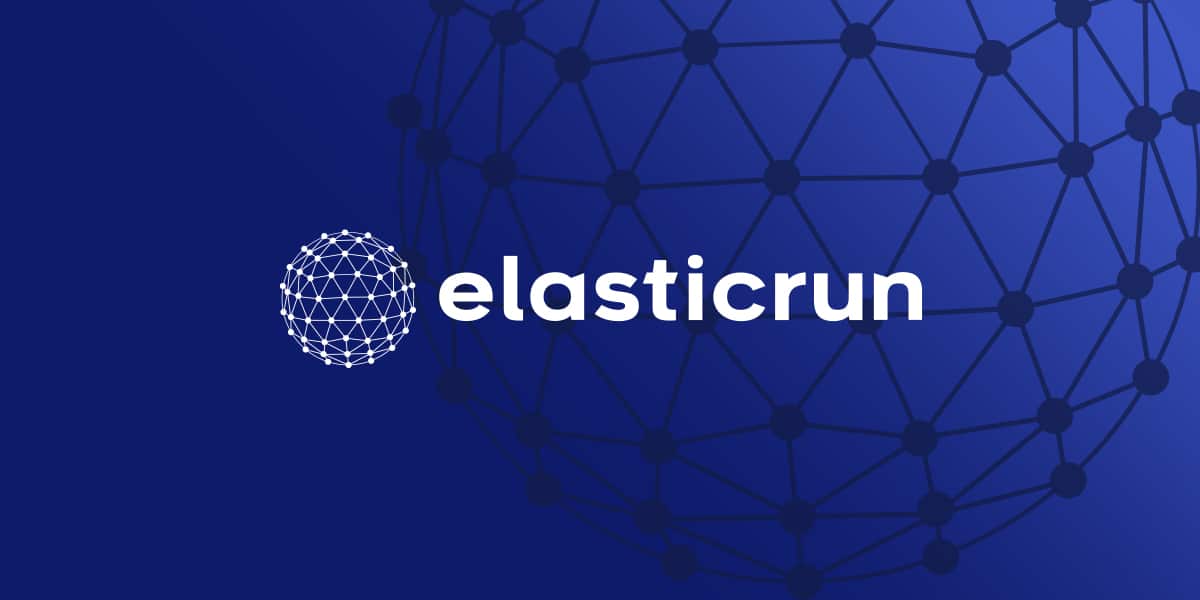ElasticRun is an Indian technology startup that offers an end-to-end digital platform for businesses to manage their logistics and supply chain operations. The company was founded in 2016 by Sandeep Deshmukh, Shitiz Bansal, and Saurabh Nigam.
ElasticRun’s platform connects businesses with a network of on-demand logistics partners, allowing them to optimize their supply chain management, reduce costs, and improve delivery speed. The platform leverages machine learning and AI algorithms to dynamically allocate orders to the most efficient logistics partner based on factors such as distance, capacity, and availability.
ElasticRun’s services are used by a range of businesses, including e-commerce companies, consumer goods manufacturers, and retailers. The company has raised significant funding from investors, including SoftBank, and has expanded rapidly, with a presence in over 300 cities in India.
Founding Story of ElasticRun / History of ElasticRun
ElasticRun was founded in 2016 by Sandeep Deshmukh, Shitiz Bansal, and Saurabh Nigam, all of whom have extensive experience in the technology and logistics industries.

Sandeep Deshmukh, Shitiz Bansal, and Saurabh Nigam all have backgrounds in technology and logistics. Prior to founding ElasticRun, Deshmukh and Bansal worked together at Amazon India, while Nigam had previously founded an e-commerce logistics company called Nethawk.
In 2016, the three founders came together to start ElasticRun, with the goal of leveraging technology to improve logistics and supply chain operations for businesses in India. They recognized that traditional logistics models were not well-suited for the Indian market, where there are a large number of small and medium-sized businesses with unique logistics needs.
To build the ElasticRun platform, the founders raised seed funding from angel investors, including Rajesh Yabaji, founder of logistics startup BlackBuck, and Sridhar Ramaswamy, former SVP of Advertising and Commerce at Google. They then secured additional funding from Norwest Venture Partners and Kalaari Capital, two prominent venture capital firms.
ElasticRun initially focused on providing logistics services to e-commerce companies, but quickly expanded to serve other types of businesses, including consumer goods manufacturers and retailers. The platform uses machine learning and AI algorithms to optimize logistics operations, dynamically allocating orders to the most efficient logistics partner based on factors such as distance, capacity, and availability.
Since its founding, ElasticRun has raised over $400 million in funding and has expanded rapidly, with a presence in over 300 cities in India. The company has also received several awards and recognitions, including being named one of Fast Company’s Most Innovative Companies in India in 2020.
How does ElasticRun work?
ElasticRun is a technology platform that connects businesses with a network of on-demand logistics partners to help them manage their supply chain operations efficiently. Here is an overview of how the platform works:
- Businesses sign up for ElasticRun and provide information about their logistics needs, such as the types of products they are shipping, delivery locations, and delivery timelines.
- ElasticRun uses machine learning and AI algorithms to analyze this information and dynamically allocate orders to the most efficient logistics partner based on factors such as distance, capacity, and availability.
- Logistics partners on the ElasticRun platform, who are typically small and medium-sized businesses, receive notifications about available orders and can accept them based on their capacity and availability.
- Once a logistics partner accepts an order, they pick up the products from the business and deliver them to the destination.
- ElasticRun tracks the delivery in real-time using GPS tracking and provides regular updates to the business about the status of the delivery.
- After the delivery is complete, ElasticRun processes payments to the logistics partner and provides analytics and insights to the business about their logistics operations.
ElasticRun offers a range of logistics services, including last-mile delivery, warehousing, and transportation. The platform is designed to be flexible and scalable, allowing businesses of all sizes to use it to manage their logistics operations efficiently. By leveraging technology and a network of logistics partners, ElasticRun aims to provide businesses with cost-effective and reliable logistics solutions.
Business Model of ElasticRun
ElasticRun operates on a B2B (business-to-business) model and generates revenue by charging businesses for the logistics services it provides. Here are some key aspects of ElasticRun’s business model:
Commission-based model: ElasticRun charges a commission fee for every delivery made through its platform. The commission rate varies depending on the type of service and the volume of deliveries.
Subscription-based model: ElasticRun also offers subscription plans for businesses that have regular or high-volume logistics needs. These plans provide businesses with discounted rates and additional features such as priority access to logistics partners and real-time analytics.
Value-added services: In addition to its core logistics services, ElasticRun also offers value-added services such as warehousing, packaging, and quality checks. These services generate additional revenue for the company and provide businesses with end-to-end logistics solutions.
Partner fees: ElasticRun charges logistics partners a fee for using its platform, which covers the cost of technology and support services. This fee is typically a percentage of the commission earned by the logistics partner for each delivery.
ElasticRun’s business model is designed to be scalable and flexible, allowing the company to adapt to the changing needs of businesses and logistics partners. By leveraging technology and a network of logistics partners, ElasticRun aims to provide businesses with cost-effective and reliable logistics solutions, while also creating opportunities for logistics partners to grow their businesses.
Growth of ElasticRun over the years
ElasticRun has shown impressive growth in its user base, customer base, revenue, and profits since its founding. Here are some key highlights:
User base: ElasticRun has built a network of over 100,000 logistics partners across India, which includes truck owners, small delivery companies, and local retailers. The company also has a growing user base of businesses that use its platform to manage their logistics operations.
Customers: ElasticRun has a diverse customer base that includes e-commerce companies, consumer goods manufacturers, and retailers. The company works with some of the largest e-commerce platforms in India, including Flipkart and Amazon, as well as with local retailers and consumer goods companies.
Revenue: ElasticRun’s revenue has grown rapidly in recent years, with the company reporting a 400% increase in revenue in the fiscal year 2019-20. ElasticRun’s total revenue soared 3.5X to INR 3,824 Cr in the financial year 2021-22 (FY22) from INR 1,087 in the previous year. It has raised over $400 million in funding to date and is estimated to be valued at over $1.5 billion.
Profits: ElasticRun has not yet reported profits, as it is still investing heavily in technology and expanding its logistics network. ElasticRun’s net loss jumped 269% to INR 372.8 Cr in FY22 from INR 101 Cr in FY21. However, the company has stated that it is on track to achieve profitability in the near future.
Overall, ElasticRun’s growth trajectory has been impressive, driven by its innovative use of technology to optimize logistics operations and its ability to build a large and diverse network of logistics partners. The company’s strong user base, customer base, and revenue growth suggest that it is well-positioned to continue to grow and expand in the Indian logistics market.
Funding and Investors of ElasticRun
ElasticRun has raised several funding rounds since its founding in 2016. Here are the major funding rounds the company has raised:
Seed funding: ElasticRun raised $1.5 million in seed funding in December 2016, led by Kalaari Capital and Norwest Venture Partners.
Series A funding: In April 2018, ElasticRun raised $12.5 million in a Series A funding round led by Kalaari Capital and Norwest Venture Partners.
Series B funding: In January 2019, ElasticRun raised $40 million in a Series B funding round led by Prosus Ventures (formerly Naspers Ventures) and existing investors Kalaari Capital and Norwest Venture Partners.
Series C funding: In December 2019, ElasticRun raised $70 million in a Series C funding round led by hedge fund Coatue Management, with participation from existing investors including Prosus Ventures, Kalaari Capital, and Norwest Venture Partners.
Series D funding: In February 2021, ElasticRun raised $75 million in a Series D funding round led by existing investor Coatue Management, with participation from new investors such as Elevation Capital (formerly SAIF Partners) and Vulcan Capital.
Series E funding: In Febuary 2022, ElasticRun raised $330 million in a Series E funding round led by SoftBank Vision Fund 2 and Goldman Sachs Asset Management.
The round (Series E) has valued the company at $1.5 billion making it India’s 7th unicorn of 2022.
Overall, ElasticRun has raised over $434million in funding to date, from a range of investors including venture capital firms, hedge funds, and strategic investors. The company’s successful fundraising rounds are a testament to its strong growth potential and innovative use of technology to optimize logistics operations.
Also Read: Delhivery – Startup Story, Business Model, Revenue, Growth & Funding
Future of ElasticRun
The future of ElasticRun looks promising, as the company is well-positioned to continue to grow and expand in the Indian logistics market. Here are some factors that suggest a bright future for ElasticRun:
Huge market potential: The Indian logistics market is estimated to be worth $215 billion, and is projected to grow at a compound annual growth rate of 10.5% over the next five years. ElasticRun’s innovative platform and network of logistics partners enable it to tap into this large and growing market.
Strong investor backing: ElasticRun has raised over $400 million in funding from leading venture capital firms and strategic investors, which will provide the company with the resources it needs to continue to expand and develop new products and services.
Innovative technology: ElasticRun’s use of technology to optimize logistics operations is a key differentiator for the company. The company’s platform leverages AI and machine learning algorithms to route deliveries more efficiently and optimize logistics partner utilization.
Diverse customer base: ElasticRun serves a diverse customer base that includes e-commerce companies, consumer goods manufacturers, and retailers. This diverse customer base provides the company with multiple revenue streams and reduces its reliance on any one sector or customer.
Focus on sustainability: ElasticRun is committed to reducing its carbon footprint and promoting sustainable logistics practices. The company is exploring the use of electric vehicles and other eco-friendly transportation solutions to reduce emissions and minimize its impact on the environment.
Overall, ElasticRun is well-positioned to capitalize on the growing demand for efficient and cost-effective logistics solutions in India. The company’s innovative technology, strong investor backing, and diverse customer base suggest that it has a bright future ahead.
To read more content like this, subscribe to our newsletter




